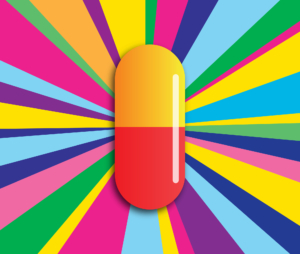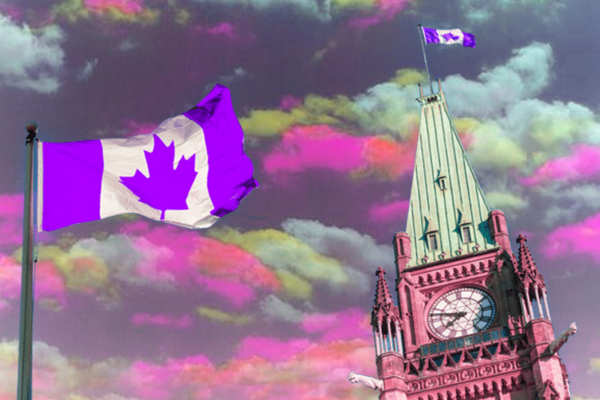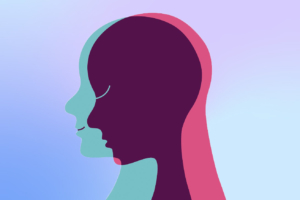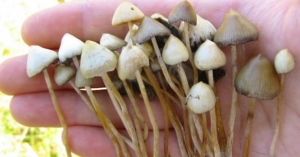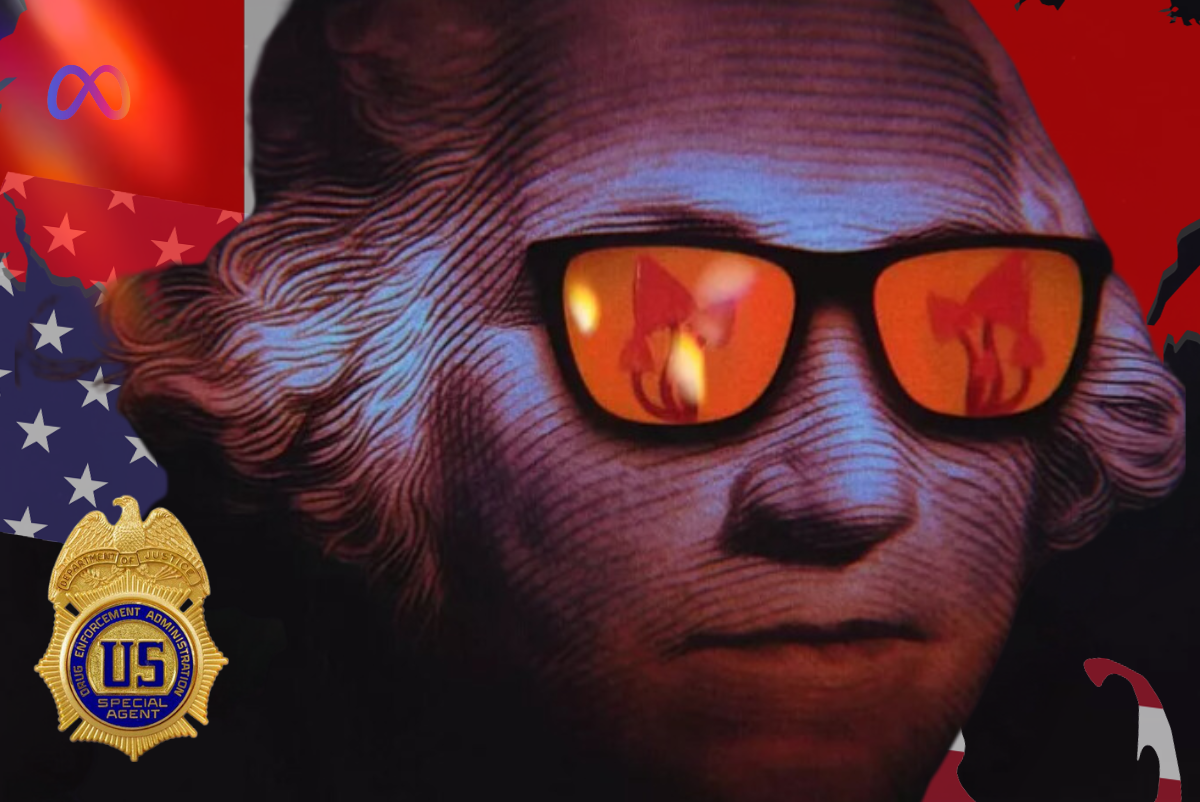
RESEARCH
Strong Expectations of Psilocybin’s Antidepressant Effects Are Link to the Strength of Emotional Breakthroughs and Ego Death, Study Shows
A study published in the Journal of Humanistic Psychology shows that there is a significant link between psilocybin users’ level of emotional breakthroughs and ego death experiences and their expectations that the medicine will have antidepressant effects. In other words, the strength of the subjective experience determines individuals’ beliefs of the therapy’s effects. After surveying 551 participants who ranged in age from 18 to 73, the researchers found that these individuals tend to anticipate that psilocybin-assisted therapy would have a more profound effect on hope, happiness, and fear related symptoms, and expected fewer benefits for symptoms like motivation, focus, loneliness, and sleep disturbances.
Read the study here.
Brain Fingerprinting Shows that Psilocybin Induces Unique Responses in Default Mode Network
In a preprint study published in Network Neuroscience, researchers used brain fingerprinting to investigate what our brains look like on psychedelics in healthy volunteers.
After looking at Functional MRI brain scans, they discovered that psilocybin exhibits unique brain responses centered around the default mode network (DMN), a set of brain regions that is active during resting states, such as when we daydream, meditate, think about the past, or contemplate the future.
Studies have already shown that psilocybin activates certain parts of the DMN during psilocybin-induced altered states of consciousness, contrary to previous belief that the DMN becomes deactivated. However, this study builds on the previous research. While comparing the psilocybin and the placebo groups, the researchers saw that the psilocybin group’s DMN responses varied from person to person. The researchers believe that factors like genetics and microbiome influence individualized responses.
One of the lead researchers compared these individualized responses to a QR code where we all have our unique pattern of lines. When individuals use psilocybin, the lines making up the bar code change around. The change in patterns is related to the subjective psilocybin experiences as the DMN becomes more active.
Read the study here.
Single Dose Of Next-Gen Psilocybin Shows Significant Reduction In Depression, 20% No Longer Needing Treatment
Cybin, a biotech company developing next-generation psychedelıcs, has reported unprecedented interim results from its Phase 2 clinical trial using CYB003, a proprietary deuterated psilocybın compound.
These results demonstrated a rapid and robust reduction in depression symptoms after a single dose of deuterated psilocybin with more than half (53.3%) of the patients experienced a significant reduction in their depressive symptoms by at least 50%. demonstrating a significantly higher response rate vs traditional antidepressants. Moreover, 20% of the participants were in remission three weeks later, meaning they no longer met the clinical criteria for depression.
The results are extremely positive considering traditional antidepressants often struggle to help patients achieve remission, with many still experiencing symptoms even if they have a responds to the treatment.
Read more here.
Psychedelics May Reduce Symptoms of OCD
A recent study conducted at Sorbonne Université in Paris found that classic psychedelics can be effective in reducing OCD symptoms. The dose and the intensity of the psychedelic effects were correlated with symptom reduction.
The persistence of the therapeutic effects varied from weeks to months, but there were no predictors for this. However, the frequency of use was related to how profound and persistent the therapeutic effects were.
Read the full study here.
The More Challenging the Bad Trip And the More Unprepared You Are – the Longer the Adverse Side Effects Last, News Study Finds
A research published in the journal PLoS ONE aimed to investigate the long-term difficulties that can follow a psychedelic experience, and discovered the main predictors of extended difficulties.
The researchers recruited 608 participants via social media, email lists, a newsletter and newspaper advertisement who had post-trip problems that lasted more than one day, and asked them to fill an online survey about their experience. The participants also provided details about the type of psychedelic substance used and its dosage, detailed written accounts of their psychedelic trip and the post-trip difficulties they experienced.
According to the survey results emotional and social difficulties are the most common post-trip problems:
- 67% of participants reported experiencing “anxiety, fear, anger, low mood or depression, paranoia, panic attacks, shame or guilt, or resurfaced trauma,” after going on a psychedelic journey.
- 27% of participants reported feeling a sense of disconnection from others, having difficulties communicating, or experiencing social anxiety or withdrawal after their trip.
- 21% of the participants said that they experienced perceptual difficulties such as visual or auditory hallucinations, “flashbacks,” or time distortions, and a slightly smaller proportion
- 18% reported cognitive problems including,” difficulty thinking clearly or concentrating, intrusive thoughts, forgetfulness, or difficulty making decisions.”
The key findings were that the more challenging the psychedelic trips were, the longer-lasting the adverse effects. They also found a correlation between unpredictable or unguided settings with a broader spectrum of negative effects. Psilocybin and LSD were found to be the main culprits of long-term difficulties. However, this may be simply because they are more available to find than DMT and ayahuasca.
These findings, although probably not surprising to the psychedelic space that encompasses academics, practitioners, and psychonauts who repeatedly focus on the importance of preparation, set and setting, and a trip sitter as key pillars for an optimal psychedelic experience, shine a light on the importance of education before one decides to delve into a psychedelic experience, whether it be for therapeutic or recreational purposes.
Read study here.
BUSINESS
Meta Does What Meta Wants
Meta Platforms Inc., the tech giant behind Facebook and Instagram, is yet again being inconsistent about it’s rules and regulations surrounding posts that “violate” their community guidelines by ignoring advice on how to manage posts related to psychedelics.
The drama surrounding the problem dates back to a 2022 “paid partner” post promoting ketamine as “medicine” and describing it as a “magical entry to another dimension.” The main question revolves around whether promoting ketamine as a medicine that could “provide a magical entry into another dimension” is appropriate as the company kept on allowing the post to circulate, then taking it down, then allowing it back on the platform, in a sort of cha-cha move.
Fast forward to August 2023, Meta’s Oversight Board overruled Meta’s decision to keep the post alive, but it also used the decision as a pretext to provide more recommendations since the giant’s guidelines about “promoting illegal substances” are inconsistently enforced.
This is indeed true. Members of the psychedelic community do face difficulties and never know when they’ll be slapped by a post deletion, or worse – their accounts being taken down for violating community guidelines. This being said, there is a clear difference between promoting an illicint substance for sales purposes or boosting a post about psychedelic integration services. It seems like the Meta lords can’t really differentiate between posts and flag “no-no” words, such as “psychedelics, “medicines”, and “psilocybin, without looking at the context of the post.
In response to the audit that the Oversight Board has been pushing, Meta responded that they would “assess the feasibility” in 2024, and that their current “machine-learning automation” already does a decent job at flagging potentially dangerous content in violation with their guidelines.
Read the full story here.
POLICY
DEA Calls For Dramatic Increases In Psilocybin, Ibogaine And THC In Its 2023 Production Quota To Meet Research Demands
DEA intends to almost double the manufacturing of psilocybin, psilocyn, and delta-9 THC compared to initial levels determined in the beginning of 2023, while increasing the production on ibogaine by nearly four times the original quota. The agency also wants 23 times more of “other tetrahydrocannabinol.”
The proposed new quotas of psychedelic substances are as follows:
- Psilocybin: 15,000 grams vs previously set 8,000 grams.
- Psilocyn: 24,000 grams vs 12,000 grams
- Ibogaine: 150 grams, fives times the amount of the 2022 proposed quota
Read full story, click here.
A Massachusetts Campaign Believes It Has Enough Signatures to Force Lawmakers to Consider a Psychedelics Legalization Initiative
The Massachusetts for Mental Health Options campaign believes it has collected enough valid signatures to force lawmakers to consider an initiative legalizing psychedelic substances. This is the first step before submitting the proposal in the state’s 2024 ballot.
The campaign has gathered and internally verified signatures from 75, 000 registered voters, surpassing the required threshold by almost 500 signatures. Compared to the
The selected initiative is more expansive as it would provide adults 21 and older with a home cultivation option.
Here are the key details of the Natural Psychedelic Substances Act:
- Adults 21 and older could legally possess, grow and share certain amounts of psychedelics.
- Possession limits are:
- DMT (1g)
- Non-peyote mescaline (18g)
- Ibogaine (30g)
- Psilocybin (1g)
- Psilocin (1g).
- The penalty for possession is $100 civil fine for amounts of up to double the proposed limit.
- Amounts above the limit will remain criminalized.
- Psychedelics purchased at licensed facilities would be taxed at 15%, and localities would have the option of imposing an additional 2% tax if they permit the centers to operate in their area. The revenue earned would fund the regulation of the program.
- There are no provisions on expunging prior convictions for activities that would be made legal.
- Local governments could enact regulations on the time, location and manner of service centers, but they could not outright ban them from operating in their area.
- Adults would be allowed to grow and cultivate psychedelics in a maximum 12X12 ft. space.
Read the full list here.
CULTURE
Vancouver Police Raids 3 Psilocybin Shops
The Vancouver police have raided three psilocybin dispensaries in the Marpole, Mount Pleasant, and Strathcone neighborhoods.
Dana Larsen, an activist for drug policy reform who owns the raided shops, says he owns a license for his businesses, but court dates are scheduled to determine whether these licenses are legal.
Psilocybin is still illegal in Canada, with certain exceptions like clinical use, and a special authorization for legal psilocybin access allowed by to s. 56 of the Act or the Special Access Program (SAP).
There are exceptions for B.C. residents who, as of January 31, 2023, no longer face criminal penalties for carrying small amounts of heroin, fentanyl and morphine, crack and powder cocaine, meth, and MDMA. However, it’s still illegal to sell psilocybin and other psychedelic drugs without an exemption from Health Canada.
“This is pretty surprising,” Larsen says. “If you believe in progressive drug policy then this is a real setback for the city of Vancouver.”
“We have been clear that anyone who breaks the law by illegally trafficking controlled drugs and substances could be arrested and charged with a criminal offense,” Sgt. Steve Addison told CBC news.
“This includes people who traffic drugs for profit from unlicensed and illegal retail businesses.”
Read full story here.
